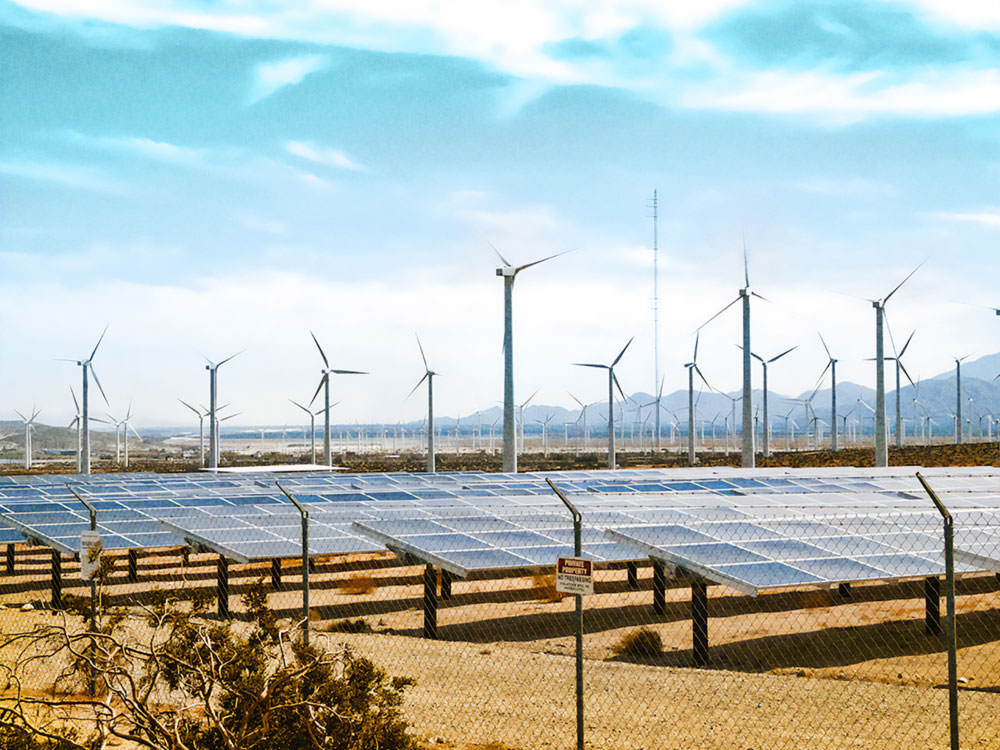For those of us active in the work on climate, energy transition, and committing our careers to mitigating the worst effects of climate change, each passing year amplifies the critical nature of our collective efforts. We deeply understand the risks to humanity (all life, frankly) if we cannot keep global temperatures to 1.5 C, especially to vulnerable populations, particularly in the Global South, and disenfranchised communities. And we are often the first to point out to those who will listen that we no longer have the luxury of time.

In recent years, this urgency has drawn an incredible level of funding and corporate commitment to clean energy and climate tech industries. Dubbed Cleantech 2.0, this new wave of activity is bringing greater attention to both startups and Fortune 500 companies alike, including increased scrutiny over how startups run their operations and corporations fulfill their ESG commitments.
We should know: we were there 15 years ago for Cleantech 1.0. While the movement delivered several successes, there were also failures, thanks to abbreviated VC timelines, immature technology, an incongruent capital stack for the structural investment required, and a lower focus on risk management. The pressure to mitigate risks related to managing financial runway and commercial adoption was significantly less than it is today for early-stage startups. Further, the scrutiny around execution risk was also lower, as VCs and startups learned by doing.
In past years and during bull markets, VCs left very early-stage companies mostly to their own devices, particularly at Series A. It was often not until a more significant round of funding, such as Series B or C, that investors weighed in much more heavily to make sure appropriate investments were being made in high-value climate change jobs and making introductions of experience through retained search firms in order to aid in acquiring the best talent.
Work on climate, climate change jobs, climate careers
In Cleantech 2.0, these gating items have been significantly reduced. For the most part, we have technology that works, innovative capital stacks, strong political will, widespread policy and social support, and diverse teams. This time, however, the biggest risk is execution risk and people (talent) risk in finding the talent to work on climate.
Hiring Mistakes Exacerbate the Climate Crisis
One risk ignored by Cleantech 1.0 that continues to be overlooked by leaders in Cleantech 2.0 today is the danger of neglecting talent risk. It is too common for startups and corporations to blindly hire employees or build new divisions without thinking about the broader implications of the company’s roadmap if things go wrong. In any business, a hiring mistake can have a domino effect, and when your business focuses on averting a genuine and urgent climate crisis—hiring the wrong person, or the right person at the wrong time, or losing a candidate with an offer out of touch with the market—can set the whole sector back.
In 2020, these issues became more acute, thanks to the Great Resignation, the need for remote hiring, and a general reassessment of priorities for large pools of talent. If you layer on the urgency of scaling solutions in energy, mobility and infrastructure, it became clear that both early-stage companies and their investors needed high-quality talent advisory services and talent intelligence that would supercharge and condense their talent acquisition processes and help mitigate execution risk.
Unfortunately, this type of advisory service has long been reserved for the private equity or public markets environments, as these services are often expensive, not right-sized for early-stage companies, and not focused on emerging verticals and market segments.
This realization and gap in the marketplace prompted us to build Sea Change in 2020, which has been quietly providing these talent advisory and intelligence services to innovative corporates, startups and ecosystem investors over the past several years. Focusing on climate careers, we found that these services were highly complementary to our executive, professional and technical search practices at Enertech Search Partners, increasing the speed and accuracy of the recruiting work we are well known for.
After more than 15 years as a leading talent acquisition firm in energy, mobility and infrastructure, we are bringing Enertech and Sea Change together as one brand to provide a robust set of talent advisory, intelligence and specialized recruiting services for companies and investors who are serious about changing the world through climate change jobs.

It’s All About the People, People
Sea Change is pioneering climate-focused search, specializing in talent acquisition across the energy, mobility, and infrastructure sectors. Our robust advisory and market intelligence foundation empowers us to craft comprehensive talent strategies, covering climate change jobs across executive, professional, and technical roles. We partner to optimize the hiring process, helping organizations make more cost-effective decisions from Board to bench. We act as a strategic partner for investors, startups, and corporations.
This once-in-a-generation opportunity to transform our world requires a bold approach and not “more of the same” type of reactive recruiting. We need to use our collective knowledge and experience to de-risk talent decisions in order to minimize execution risk and drive success which will keep investors coming back for more, even when the broader capital markets may be wavering. We feel we owe it to you, our ecosystem, to share this knowledge to help build climate careers.
For over a decade, we’ve watched leaders in our sectors make the same candidate search and hiring mistakes over and over. We’ve outlined the most common missteps at each stage of a startup’s growth or a new corporate division’s rollout. These mistakes are costly from both a time and money perspective. They can shorten a startup’s runway and slow down commercialization. Yet, when leaders do not have a toolkit to strategize and develop a practical hiring playbook, they must make do with the information they have. Unfortunately, society doesn’t have that luxury anymore. Sea Change is born out of refusing to stand by and watch our industry suffer from the same disastrous and avoidable hiring mistakes across climate change jobs.
Like traditional venture capital, talent venture requires a deep understanding and partnership with its portfolio companies. Through our transparent relationships and expanded services, we are reducing the execution risks in the hiring process for the entire ecosystem. Our talent roadmaps and execution plans empower VCs and their portfolio companies, as well as forward-looking corporations, to access the market insights that allow them to take advantage of opportunistic hires while executing flawlessly on their defined talent roadmap.
Our mission is to solve the climate crisis one person at a time. While our name and brand may look different, we will continue to serve as a true talent partner for companies and candidates and further society’s efforts to preserve a livable planet.
A warming planet is a very real and urgent scenario for us. The bigger impact we at Sea Change and Enertech can make today is by playing a more profound role in aggressively scaling businesses that are solving the climate crisis. This is our investment in the future because we believe people – not technology – will be the catalyst in the race to stop a climate breakdown.
Your ally in the climate fight,






